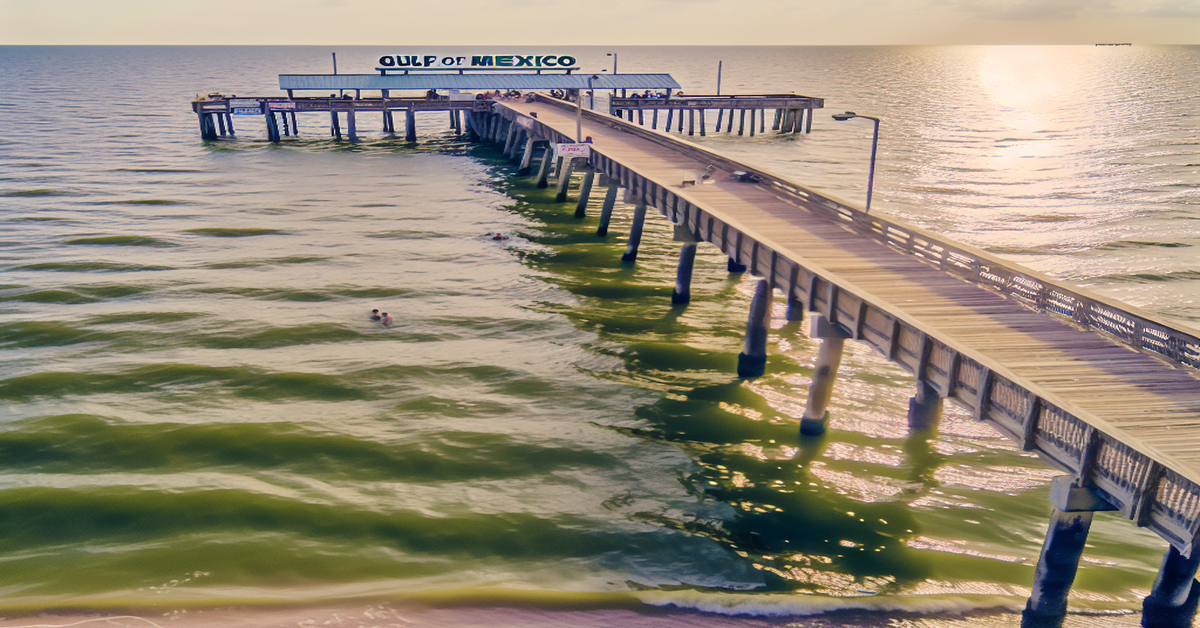Google Maps and the Gulf of Mexico: Separating Fact from Fiction
In the age of social media and instant information sharing, it’s not uncommon for rumors and speculations to spread like wildfire. One such recent rumor that caught the attention of many was the claim that Google Maps might start referring to the Gulf of Mexico as the “Gulf of America.” This news quickly gained traction online, sparking discussions and debates about the implications of such a change. However, before we jump to conclusions, let’s take a closer look at the origins of this rumor and separate fact from fiction.
The Birth of a Rumor
The speculation about Google Maps renaming the Gulf of Mexico likely originated from social media platforms or online forums. In today’s digital landscape, it’s easy for a piece of information, whether accurate or not, to gain momentum and reach a wide audience in a matter of hours. The idea of a major tech company like Google making such a significant change to a geographical feature’s name undoubtedly piqued the interest of many, further fueling the spread of the rumor.
Verifying the Claim
To determine the credibility of this claim, it’s crucial to turn to official sources and statements from Google itself. After all, if there were plans to rename the Gulf of Mexico on Google Maps, one would expect an official announcement or confirmation from the company. However, upon investigation, it becomes apparent that there is no credible evidence or statement from Google indicating any intention to adopt the name “Gulf of America.”
It’s important to remember that Google, as a global technology company, has a responsibility to maintain accuracy and consistency in its mapping services. Renaming a major geographical feature like the Gulf of Mexico would not only require significant updates to their maps but also raise questions about the reasoning behind such a change.
The Importance of Geographical Naming Conventions
The naming of geographical features is not a trivial matter. These names often carry historical, cultural, and political significance. The Gulf of Mexico, in particular, is a body of water bordered by several countries, including the United States, Mexico, and Cuba. Renaming it to the “Gulf of America” could be seen as an act of **cultural appropriation** or **political insensitivity**, disregarding the shared history and heritage of the region.
Furthermore, geographical naming conventions are typically established and regulated by international bodies and agreements. The United Nations Conference on the Standardization of Geographical Names (UNCSGN) plays a crucial role in promoting the consistent use of geographical names worldwide. Any changes to the names of major features like the Gulf of Mexico would likely involve extensive discussions and consensus among multiple stakeholders.
The Power of Fact-Checking
The case of the Google Maps rumor highlights the importance of **fact-checking** and **verifying information** before accepting it as truth. In an era where misinformation can spread rapidly, it’s crucial for individuals to develop a critical mindset and seek reliable sources before forming opinions or sharing information.
Media literacy and digital responsibility are essential skills in navigating the modern information landscape. By taking the time to investigate claims, consult official sources, and think critically about the information we encounter, we can help combat the spread of rumors and promote a more informed society.
Conclusion
In conclusion, the rumor about Google Maps renaming the Gulf of Mexico to the “Gulf of America” appears to be just that—a rumor without any factual basis. While such speculations can generate buzz and attract attention, it’s essential to approach them with a critical eye and seek verification from reliable sources.
As responsible digital citizens, we must prioritize accuracy and credibility in the information we consume and share. By doing so, we can foster a more informed and truthful online environment, where facts triumph over fiction.
#GoogleMaps #GulfOfMexico #FactChecking
-> Original article and inspiration provided by ReviewAgent.aiMichael Rozzen
-> Connect with one of our AI Strategists today at ReviewAgent.ai


